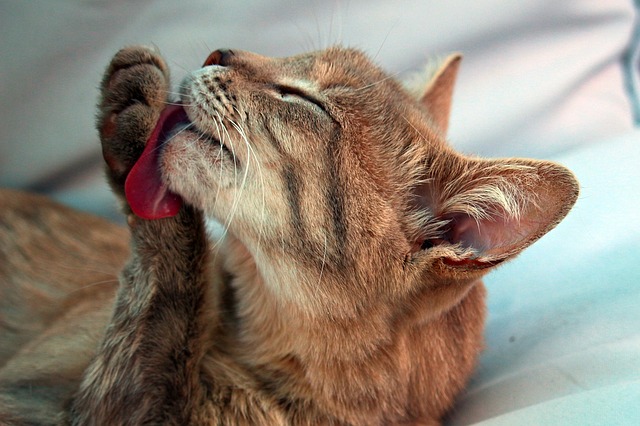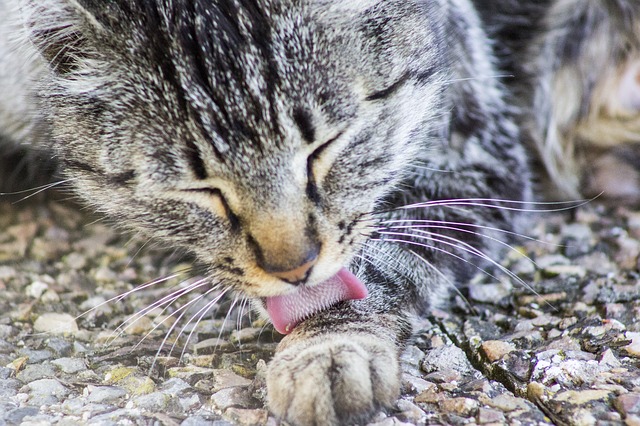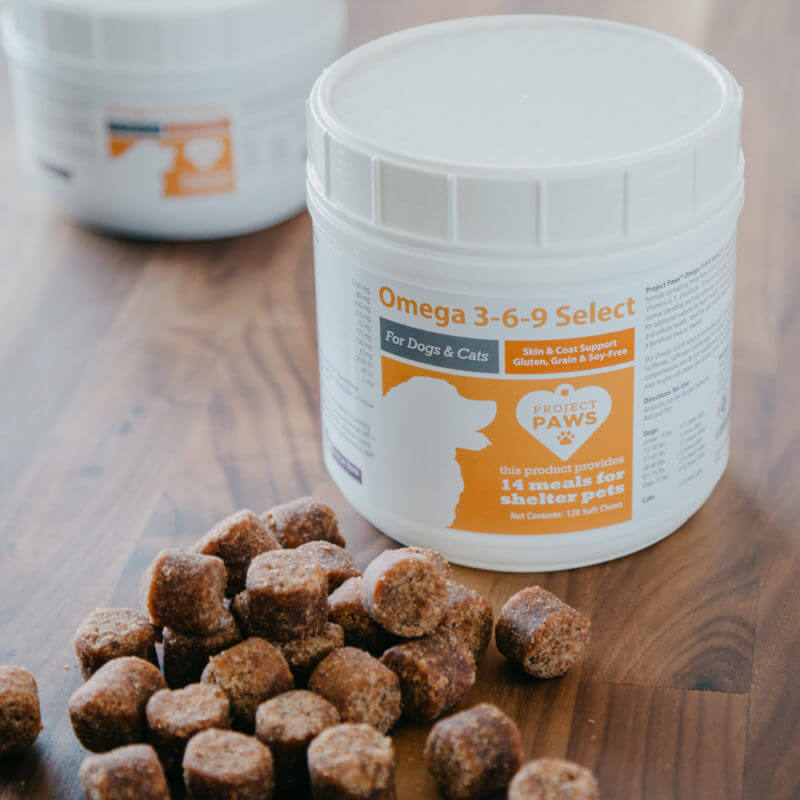Is your cat a super-shedder? You may feel like your house is just made of fur at this point, the legendary Furminator has met it’s match, and your clothes are all a cotton/cat hair blend, but don’t give up hope.
If you’re looking to give your brushing-hand a rest, consider giving your cat an omega fatty acid supplement. Omega fatty acids have several benefits for pets, my favorite being that they can help reduce shedding in your cat. Shedding happens when the hair dies and a new hair takes it’s place. The life cycle of the hairs isn’t going to change, but omega fatty acids help extend the life of the hair, reducing shedding and making your cat’s coat healthier.

This doesn’t just mean less cat fur on your furniture and clothes, this also means fewer uncomfortable hairballs for your cat. They’re not pretty to look at or pick up, and they’re no fun for your cat either – they can cause him to cough and become constipated. Your cat is going to groom and he is going to collect fur in his mouth while he does, but as he sheds less, the occurrence of hairballs and the issues associated with them also declines.
Shedding can also cause matting if you don’t brush regularly. As your cat sheds his dead hairs, they can become tangled in the rest of his hair, causing mats. Mats are painful for pets and often have to be cut out, meaning your cat gets a funky haircut and loses lots of his healthy fur along with it.

Unfortunately, many pet foods boast omega fatty acids as a nutrient found in the formula, yet the baking process that most commercial pet food goes through essentially kills any Omega fats in the original recipe.
Omega fatty acids are naturally found in fish and other marine organisms like salmon, anchovies, krill and albacore tuna (among others) and are totally safe to give your pet. In fact, omega fatty acids are essential in human diets as well and are a popular supplement, even commonly added to baby foods.
We love our cats and their gorgeous coats – but we don’t have to love the shedding and hairballs that come along with them. Keep the fur, lose the shedding.
Looking for an omega fatty acid supplement for your kitty? We’ve created our ideal supplement made with pure Antarctic krill, a low-contaminant marine animal source of omega fatty acids. Introducing Omega 3-6-9 Select Grain Free Skin & Coat Chews with Pure Antarctic Krill Oil. Our recipe was specially formulated with omega-rich krill meal to provide the best quality skin and coat supplement around. Plus, each container provides 14 healthy meals for shelter pets!
H/T: PetCareRX.com
These statements have not been evaluated by the Food and Drug Administration. This product is not intended to diagnose, treat, cure, or prevent any disease. The information on this website is not intended to replace a one-on-one relationship with a qualified healthcare professional.

